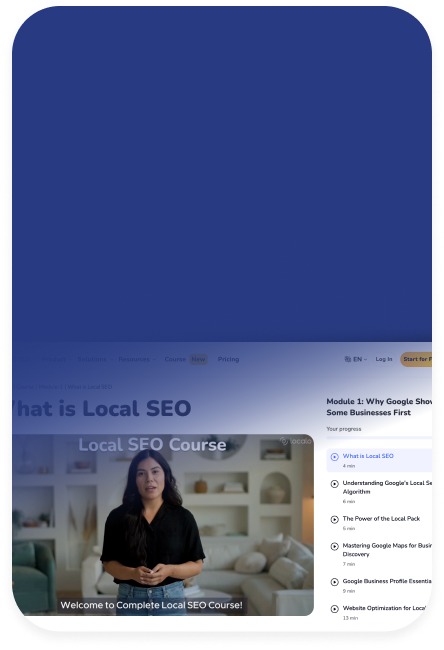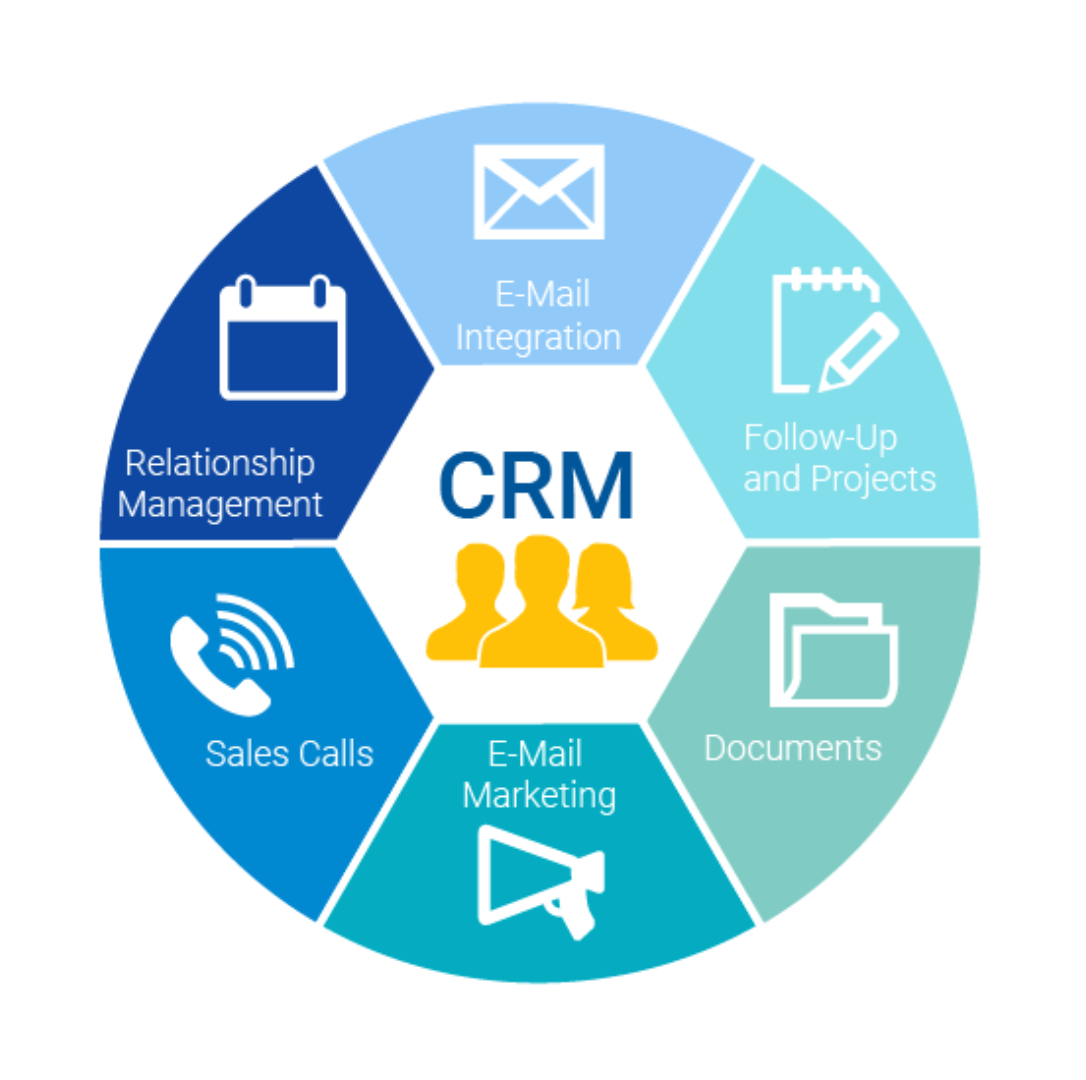
Ready to get more customers calling?
Take FREE Local SEO Course
Available now in English
CRM (Customer Relationship Management) - is a customer relationship management strategy supported by IT systems that integrate sales, marketing and customer service business processes. CRM is also the software that enables the collection, analysis and use of customer data to build sustainable and profitable relationships.

What is a CRM system used for?
Implementing a CRM platform is all about centralising customer information, automating sales, marketing and customer service tasks, as well as monitoring customer interaction and performance. With a CRM system, it is possible to personalise communication, segment customers, manage sales leads and analyse data, resulting in a better understanding of customer needs and optimising sales processes.
CRM functionalities
The CRM functions include a wide range of tools and options that support companies to manage their customer relationships effectively. The core functions in the CRM system include:
- Contact management: Centralise customer data, including contact information, interaction history, transactions and preferences.
- Management of sales and marketing teams: Tracking potential customers and managing the sales process from initial contact to closing the deal.
- Sales automation: Facilitate sales processes by automating tasks such as sending offers, appointment reminders and generating sales reps.
- Marketing: Tools to create and manage marketing campaigns, market segmentation, email marketing and performance tracking.
- Customer service teams: Functions for managing service requests, technical support, knowledge base and FAQs to help resolve customer issues quickly and efficiently.
- Analysis and reporting: Advanced analytical tools to create reports, analyse sales data, monitor KPIs and assess market trends.
- Integration with other systems: Ability to connect with other business tools such as ERP, accounting systems, e-commerce platforms or marketing automation tools.
- Mobility: Access to the CRM system from a variety of mobile devices, allowing employees to work in the field and update data in real time.
- Personalisation: Ability to customise the interface, processes and functionality to meet the specific needs of the company and users.
- Document management: Storage and management of customer-related documents such as contracts, proposals or invoices.
- Workflow and business processes: Defining and automating business processes to streamline work and increase productivity.
- Collaboration: Tools to support team collaboration, such as information sharing, task management and calendars.
How to choose the right CRM software?
CRM software is available in a variety of forms, from cloud-based solutions (SaaS) to in-house server installations. Popular solutions include Salesforce, Microsoft Dynamics 365, HubSpot CRM, Zoho CRM and many others, which offer a wide range of functionality to suit the needs of different organisations. Choosing the right CRM system should take into account the specifics of the company, its size, industry, business goals and available budget. It is important that the system is scalable, intuitive to use, compatible with other tools used in the company and offers technical support.
CRM systems - benefits
The benefits of implementing a CRM (Customer Relationship Management) system are multidimensional and cover various aspects of your business:
- Better knowledge of customers: CRM provides rich insights into customer preferences, needs and behaviours, allowing you to understand them better and manage customer relationships.
- Increasing sales: Through more effective targeting of offers and personalisation of communications, CRM can contribute to increased sales and increased customer lifetime value (CLV).
- Improved customer service: A CRM system provides quick access to a customer interactions history, allowing for a more personalised and efficient service.
- Operational efficiency: The automation of business processes, such as lead management, marketing campaigns or order processing, contributes to improved work efficiency.
- Improved team collaboration: CRM software centralises information, which facilitates collaboration between departments and teams.
- Time management: CRM helps to organise work with reminders, schedules and task automation.
- Cost reduction: By optimising processes and eliminating inefficient activities, CRM can help reduce operational costs.
- Customer loyalty: The systematic managing customer relationships through CRM promotes customer satisfaction and loyalty, leading to a longer relationship.
- Adaptation to business needs: The flexibility and scalability of CRM systems allow their functionality to be adapted to changing business needs.
By using a CRM system, companies can not only improve their financial performance, but also build a strong brand and reputation based on quality customer relationships.
![What is CRM - Definition [Marketing Dictionary]](/assets/img/dictionary-background.webp)
